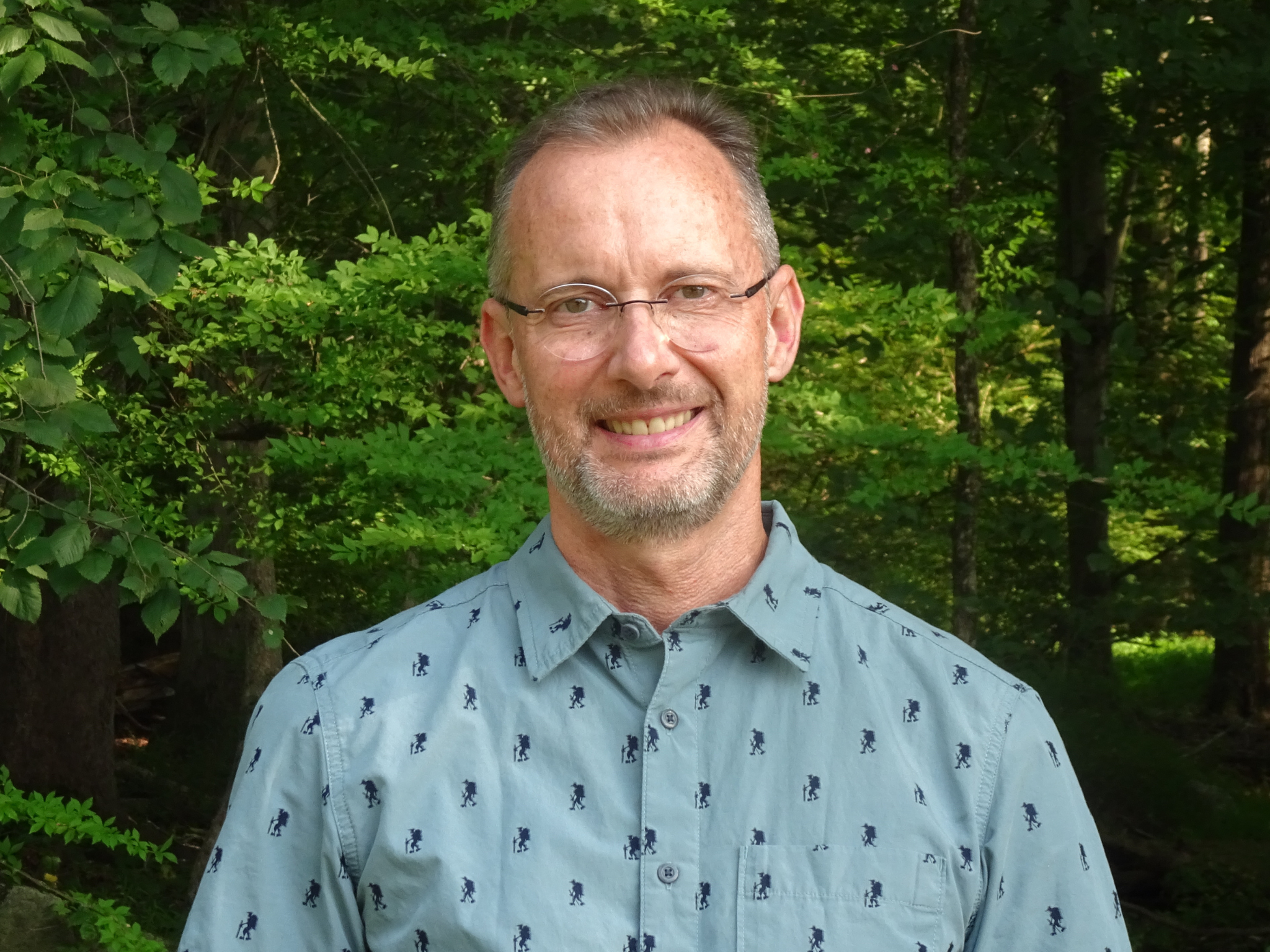
Nigel Sizer, the new CEO of the Good Food Institute, discusses the current predicament of alternative proteins, the industry’s milestones, and the need for more investment.
It’s been over a month since Nigel Sizer took over as CEO of alternative protein think tank the Good Food Institute (GFI).
Based in New York, Sizer is leading the non-profit’s global operations, working closely with regional offices in Asia-Pacific, Brazil, Europe, Japan, India, and Israel.
His appointment comes amid a turbulent time for the industry. Sales have plummeted in some of the biggest markets for alternative proteins, including the US and the UK, and investment has slowed dramatically.
Take plant-based food, for example. In 2021, startups in this space garnered $3.8B in funding, as the sector gained ground on the back of highly publicised IPOs for Beyond Meat and Oatly, and animal proteins took a hit amid Covid-19 and growing concern around the climate crisis. In 2024, however, this segment secured just $309M in investment.
These challenges have caused tons of disruption to an industry built on the idea of disruption. Since September 2024, more than 40 alternative protein businesses have either shut or been acquired, and the era of consolidation will likely continue for the foreseeable future.
GFI is at the heart of the industry’s push to boost investment and policy support, which has diminished as climate takes a backseat in stakeholders’ decision-making.
Sizer is hoping to change that. He spent 15 years in the Global South working for organisations like the UN Environmental Programme and The Nature Conservancy, among others. In addition, he served as the president and CEO of Rainforest Alliance, and as the global director for forests at the World Resources Institute. After Covid-19, he founded Preventing Pandemic at the Source, a 20-organisation coalition lobbying for policies centring on upstream pandemic prevention.
Now, Sizer is building upon all that experience to take the fight for food systems transformation to the next level. In an interview with Green Queen, he outlines the alternative protein space’s most prominent accomplishments and challenges, whether the climate argument still works with consumers, and his immediate priorities at GFI.
This interview has been lightly edited for clarity.
Green Queen: What’s your view on the current state of alternative proteins? What hasn’t been done well? What could be done better?
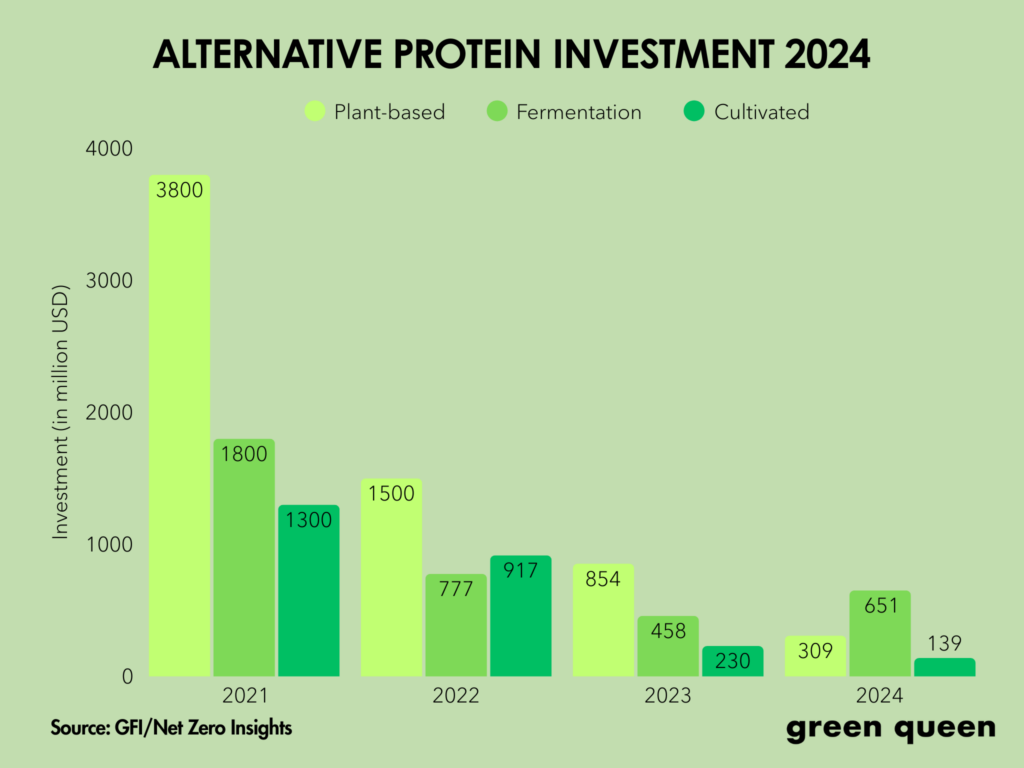
Nigel Sizer: It’s an important moment for alternative proteins. The field has made some real progress in terms of scientific research and innovation, regulatory advancements, and consumer awareness.
We know that products still aren’t consistently meeting people’s expectations on taste, price, and convenience. Funding levels—both public and private—are also far below where they need to be to unlock the full potential of these innovations.
And on top of that, disinformation campaigns disparaging new foods are impacting consumer perceptions, and some of the alternatives, like cultivated meat, are being judged prematurely and even banned before they’ve had the chance to prove themselves in a fair marketplace.
I see many of these challenges as the natural growing pains of a young sector. It’s a bit like where solar power or electric vehicles were a couple of decades ago – scepticism and costs were high, and adoption was slow, but look where they are now.
What excites me is that alternative proteins are increasingly being recognised by experts and policymakers as essential for addressing climate change, food security, and public health.
With more investment, continued scientific breakthroughs, and strong collaboration across the public and private sectors, I’m confident the field can deliver products people love while helping solve some of the world’s most urgent challenges.
GQ: What do you feel are some of the industry’s biggest wins?
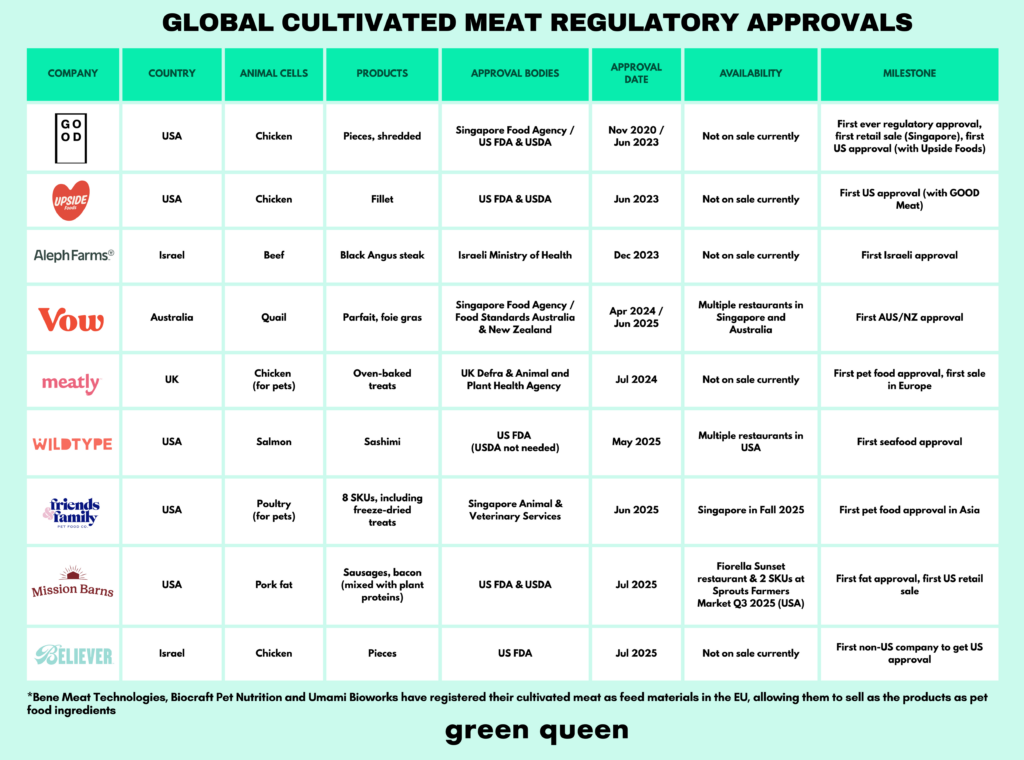
NS: In recent years, governments around the world have begun leaning into alternative proteins in a way we haven’t seen before, recognising their potential to strengthen food security, resilience, and climate action.
While more public investment is still needed, it’s encouraging to see momentum building: from India’s new BioE3 policy to Denmark’s landmark investment in plant-based foods to China including cultivated meat and other alternative proteins in its official five-year agricultural plan for the first time.
Those kinds of signals matter. They show that policymakers increasingly see the alternative protein industry as part of the solution set for the world’s most urgent challenges.
We’ve also seen remarkable regulatory and consumer-facing progress. In just the last few months, US regulators have completed rigorous FDA and USDA reviews, resulting in the world’s first approvals of several cultivated products.
Today, Americans in several cities can order cultivated salmon, and we’re expecting the first-ever retail launch of a cultivated meat product in the US to happen any day now – a milestone that points to what the future of food could look like. Globally, consumers in Australia and Singapore can currently buy cultivated meat at more than 60 points of sale, and just this month, a product using cultivated pork fat was served in a US restaurant for the first time.
It’s also been exciting to see that over the past year, both public and private funding for the fermentation sector has grown significantly, with initiatives like the US iFAB Tech Hub signalling that policymakers now view fermentation as a cornerstone of the American bioeconomy.
It’s still early days compared to nearly a century of industrial animal agriculture, but the pace of progress is undeniable – whether it’s reports showing culture media costs dropping by more than 99% from pharmaceutical baselines, or the launch of major new research hubs like the Bezos Centers for Sustainable Proteins in North Carolina, London, and Singapore.
Taken together, these wins are laying the foundation for alternative proteins to deliver on their promise of a more sustainable, secure, and resilient food future.
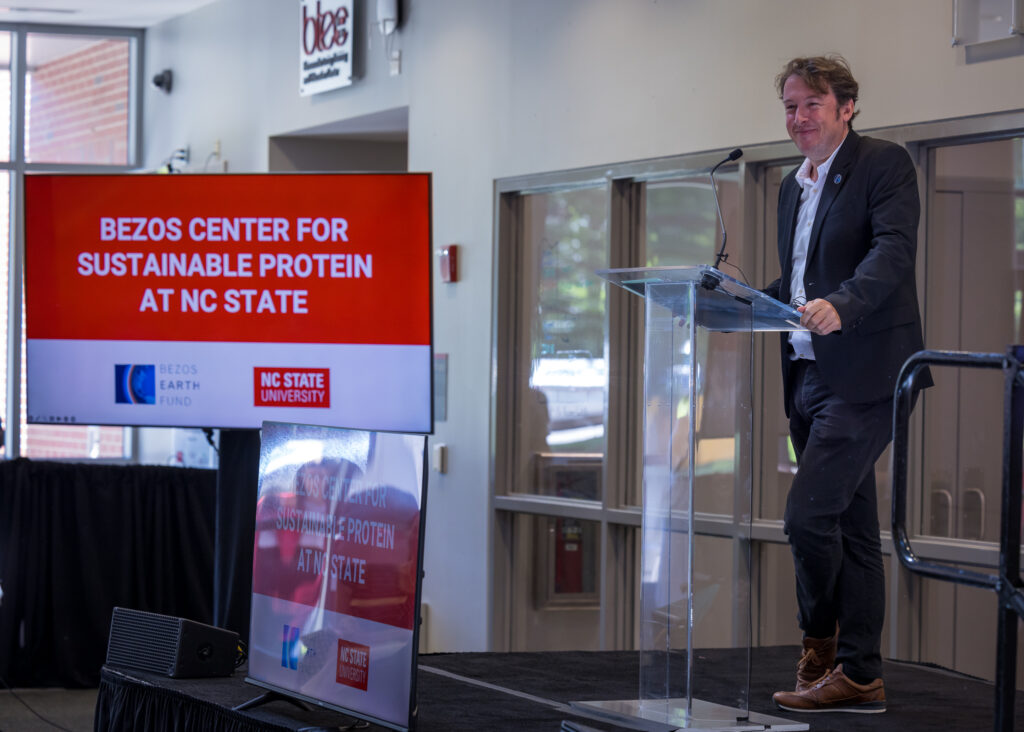
GQ: Do you think the climate argument still holds weight with consumers?
NS: There are definitely consumers – especially younger and more values-driven communities – who prioritise climate and sustainability when making their food choices.
For example, GFI’s consumer segmentation research shows that groups like ‘Ethical Alternative Seekers’ are motivated by sustainability, among other values, when deciding whether to buy plant-based meat. And GFI Europe also found that environmental concerns play an important role for many European consumers who are consciously reducing their meat consumption. So yes, the climate argument still matters for some consumer segments around the world.
At the same time, most people choose what to eat based on price, taste, and convenience – and that’s why GFI’s theory of change is centred on making sure alternative proteins compete on those terms.
Because regardless of whether someone is motivated by climate when they shop, the fact remains that we cannot meet growing global demand for protein under our current, business-as-usual food system. Something has to change, and alternative proteins are one of the most powerful tools we have to meet that demand in a way that’s sustainable, secure, and equitable.
GQ: What lessons are you applying from your previous roles?

NS: Looking back, a lot of what I’ve done in past roles feels like preparation for this moment at GFI. Whether it was working to protect forests or scaling climate and health initiatives, I saw again and again how our food system is deeply tied to some of the world’s toughest challenges.
One lesson that really stuck with me at the Rainforest Alliance and World Resources Institute is that progress doesn’t happen in a vacuum. It happens when you bring people together around practical, science-based solutions and build the partnerships needed to take them to scale.
That’s exactly the kind of approach we need at GFI. Transforming how the world produces protein isn’t something one sector or one country can do on its own – it requires international collaboration, diverse expertise, and coordination across both public and private sectors.
My background in building global coalitions and mobilising resources gives me a solid foundation to help GFI do just that. And what excites me is the chance to apply that experience to accelerate the work so that sustainable proteins become a trusted, central part of how we feed the world.
GQ: What are the biggest challenges facing you in your role? And what are your main goals over the next 12 months?
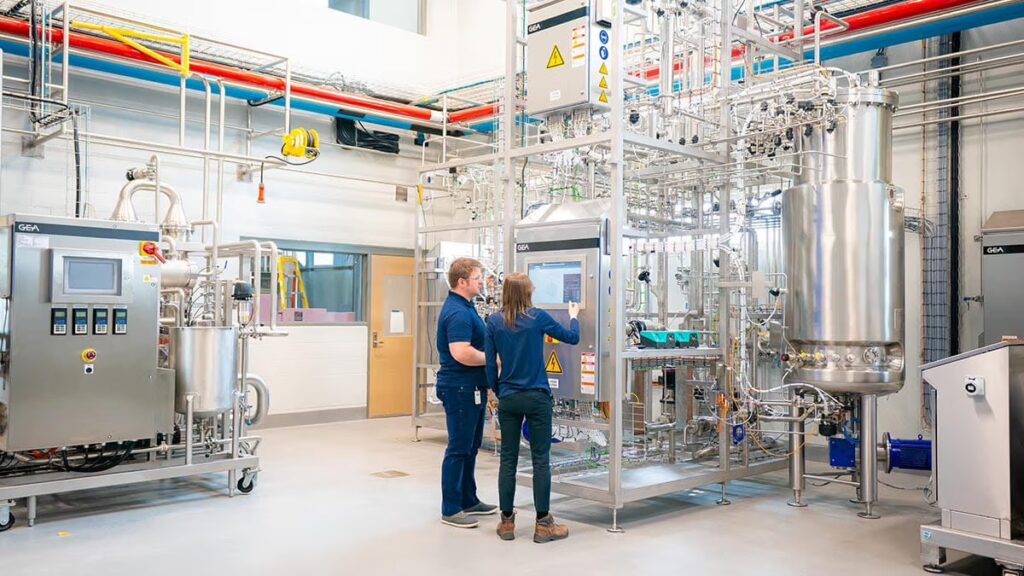
NS: Like nearly every sector outside of AI, alternative proteins are navigating a tough funding environment right now. That means one of the biggest challenges ahead is ensuring that the scientific research, infrastructure, and innovation critical to this field continue to move forward despite near-term investment headwinds.
Securing resources and making the case for why this work matters – for climate, biodiversity, food security, and public health – is central to my role. And when advocating for increased investment in science and scaling, it’s vital to underscore both the stakes and the solutions: the risks we face if food systems don’t change, and the opportunities we unlock if they do.
Over the next year, my focus will be twofold: first, strengthening GFI’s capacity to drive more public investment into R&D, manufacturing, and scale-up for alternative proteins.
Second, keeping our work tightly connected to the bigger picture: the rate of forest loss from agricultural expansion, the state of our oceans under pressure from overfishing, and the rise of zoonotic diseases with pandemic potential, just to name a few.
Alternative proteins are a powerful part of the solution to all of these challenges, and I’m committed to making sure GFI helps turn that potential into measurable progress. By building momentum now, we can lay the groundwork for a more resilient, secure, and sustainable global food system for the decades to come.
The post Good Food Institute CEO: Governments Embracing Sustainable Proteins Like Never Before appeared first on Green Queen.
This post was originally published on Green Queen.